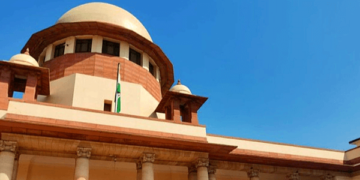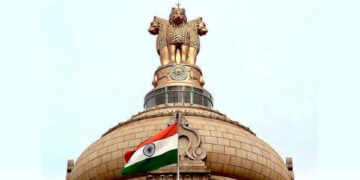History is one of the most required subjects on the UPSC syllabus, and it appears in both the prelims and mains exams. It’s also one of the optional subjects for the examination’s main portion. To boost one’s overall IAS Exam marks, one must have an outstanding understanding of the topic. So, in this post, we’ll talk about NCERT books on medieval Indian history- UPSC, the medieval period in India, and so on. When it comes to the IAS UPSC and other Civil Services Exams, history is essential.
History Of Medieval Period in India
History is a huge and complex subject that cannot be mastered in a single sitting. Many applicants, however, may be perplexed by the preparation process and find the topics uninteresting and boring. History is organized into three sections for easy and straightforward comprehension ancient history, medieval history, and modern history. UPSC began asking questions about Medieval Indian History last year. Approximately 4-6 questions about art and culture have been posed in this area. The Medieval Period spans the eighth to the twelve centuries. This relates to the Indian subcontinent’s Postclassical Era. It is further separated into two periods: early medieval and later medieval. The time of the Indian subcontinent between the ancient and modern periods is known as medieval India. We will talk about the history of Medieval Indian NCERT Books for UPSC here.
The following are some of the most essential themes to learn about in Indian Medieval History
- Kingdoms of North India
- The Deccan Kingdoms
- Sultanate of Delhi
- India’s Islamic Kingdoms
- Empire of Vijayanagara
- Bhakti and Other Religious and Cultural Movements
- The Arrival of Europeans and Mughal and Sur Rule
In the linked article, you can practice UPSC Prelims Questions from past years. The compilation of previous years’ questions will aid candidates in revising essential themes throughout the last leg of their preparation. NCERTs are the most significant and unavoidable aspect of any Civil Services preparation. Unfortunately, the majority of aspirants either disregard it or waste more time than necessary reading irrelevant material.
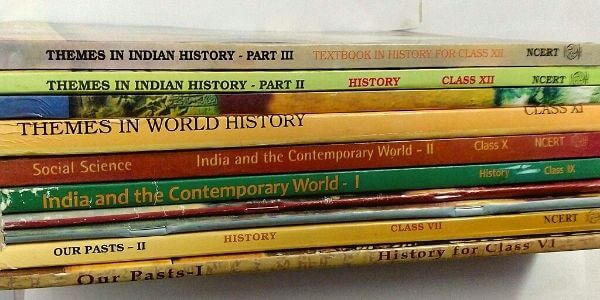
List of NCERT Best Books for History UPSC
- History: NCERT Class VI – Our Past
- Class VII – Our Past -I (NCERT History)
- History: NCERT Class VIII – Our Past II and III
- History: NCERT Class IX – India and the Contemporary World – I
- NCERT Class IX – India and the Contemporary World – II
- Class X – Themes In World History ( NCERT History)
- Class XII – Themes In Indian History – I (History)
- NCERT Class XII – Themes in Indian History II
- NCERT Class XII – Themes In Indian History III
For reference, here are some additional IAS preparation books: Medieval Indian History NCERT books
- RS Sharma’s Ancient India (class XI): This book comprehensively covers the ancient Indian history curriculum.
- Alternative Version that has been published: RS Sharma on India’s Ancient Past: Covers all of the NCERT IAS syllabus and is more extensive in every way. It should suffice as a stand-in.
- Satish Chandra’s Medieval India (class IX)
- Bipin Chandra’s Modern India (class X) is the best book for UPSC Medieval History ncert.
- Alternative Bipan Chandra’s published book, India Before Independence, is more detailed and widely available, but the NCERT is more objective & easier to read.
- World History (Class X): This should suffice as an introduction to world history.
A solid understanding of the sequence of events is required for studying Medieval Indian history. Aspirants should construct knowledge of many parts of history, such as economic history, administrative history, and the cultural influence of historical events, in addition to political history, on this basis. Aspirants simply need to click on the topic, and the PDF version of the NCERT Study Note for that topic will begin downloading directly to their device. Furthermore, these notes can be viewed for free at any time and from any location. Please take a look at this NCERT history book link.
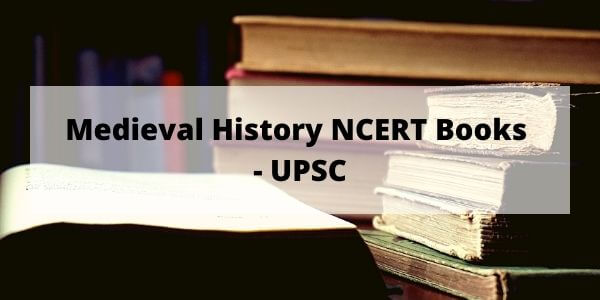
Medieval Indian History Books For UPSC
- Medieval India (Macmillan) Satish Chandra
- The Wonder That was India (Vol.2) S.A.A. Rizvi
- The Agrarian System of Mughal India 1556-1707 Irfan Habib
- The Mughal Empire J.F. Richards
- Urban Dynamics H.C. Verma
- The Marathas – Gordon
- Advanced study in the History of Medieval India – Volume I J.L. Mehta
- Volume II of the Advanced Study in the History of Medieval India J.L. Mehta (J.L. Mehta)
- Volume III of the Advanced Study in the History of Medieval India J.L. Mehta (J.L. Mehta)
- Medieval India – Volume I Satish Chandra
- Medieval India – Volume II Satish Chandra
- History Of Medieval India – Satish Chandra
- Medieval India – L. Mukherjee
- The Advanced History of India – Majumdar, Raychaudhuri & Datta
- Social life & cultural life of both Delhi Sultanate & Mughal India – J.L. Mehta
- A history of South India – K. A.Nilakanta Shastri
- IGNOU material (especially on agriculture and agrarian relations and culture)
We have mentioned Indian medieval History books here and These books are available on Amazon for download or purchase.
Importance of NCERT Book – Medieval Indian History
One of the most significant topics for the UPSC IAS Exam is Medieval Indian history, which should not be overlooked.
As virtually all candidates are aware, Indian history is a significant subject from which a significant portion of questions in the UPSC prelims and mains are drawn. Because Indian history is such a broad subject, it’s critical to prioritize particular topics for the UPSC Civil Services Prelims and Mains.
It is critical to select the priority topics for the IAS Exam, whether for the Prelims or the Mains. When looking at prior years’ question papers, it’s clear that UPSC asks the most questions about Modern India, followed by Ancient India. There are only a few questions from Medieval India. Even if they do arrive, they tend to focus on areas of culture such as Mughal art and architecture.
No, we are not suggesting that you skip any part of Indian Medieval history. Never ever leave a topic. All you have to do now is sort out your priorities. Don’t forget to make important notes.
NCERT books cover the topics that UPSC selects for question paper preparation. The books are jam-packed with facts regarded as appropriate questions for the IAS, and you won’t find them in other reference books. To further simplify the books and ensure that no information escapes your vision, important facts, dates, and subjects in each chapter are summarized
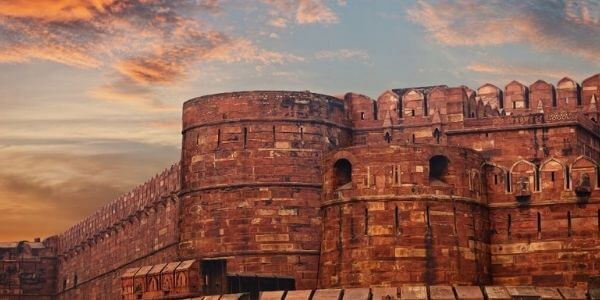
Conclusion
This article includes information on the medieval period in India, a list of UPSC NCERT books on medieval history, Medieval Indian history books, and study recommendations. These notes can be useful for last-minute review and preparation. Candidates must also consult additional sources for in-depth knowledge of the themes. Civil Services and UPSC Aspirants should begin their preparation by brushing up on their fundamentals with NCERT. We’ve also included a link to NCERT books.
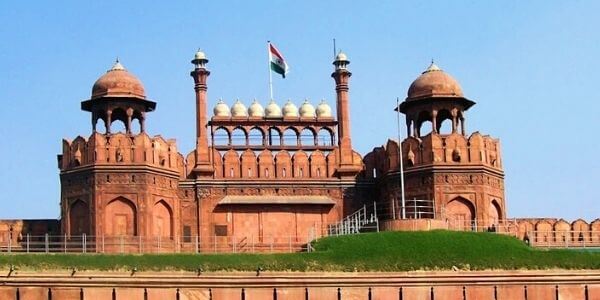
FAQs
In comparison to Ancient and Modern India, Medieval India is not as relevant for Mains, but it cannot be overlooked. Only the Prelims include questions about medieval India. We can’t foresee UPSC because we can’t predict anything.
The ‘early medieval period’ lasted from the sixth to the thirteenth centuries, and the ‘late medieval period,’ which lasted from the thirteenth to the sixteenth centuries, culminating in the foundation of the Mughal Empire in 1526, can be divided into two periods.
No, but completing NCERT books should be the top priority for aspirants. However, because NCERT books serve as a foundation, candidates should not treat them as the last thing. For example, NCERT books are the finest for particular disciplines such as geography, science and technology, world history, and Indian history. In addition, students can read various books in the market for other disciplines.
The old NCERTs had a lot of text. There are more facts & figures in them. The ancient textbooks are usually short and to the point. The themes are discussed to lead up to the main concept. They are less concerned with factual details in general. In addition, the new NCERTs appear to contain fewer errors than the old ones. For obvious reasons, hard copies of the new NCERT textbooks are easier to come by! The new NCERTs have more drawings and diagrams than the old textbooks. The new textbooks are Like any new version of a book. So, the answer to whether NCERTs are better old or new is determined by the manner of study and each individual’s ability and preparation style.
Editor’s Note | Medieval Indian History
In summary, the following post will help you prepare for the IAS test by providing information on Medieval Indian history & medieval period in India books and other history books. As an IAS applicant, you are probably familiar with the exam syllabus and paper pattern. Once you’ve mastered the NCERT books, you can comfortably progress to more advanced books that focus on improving your speed and accuracy. When you have completed NCERT, it becomes much easy to understand these books. We all know that passing the exam is difficult, but if you are dedicated to your goals and have the appropriate plan and direction, you can become the next IAS officer. So, we wish you all the best!


